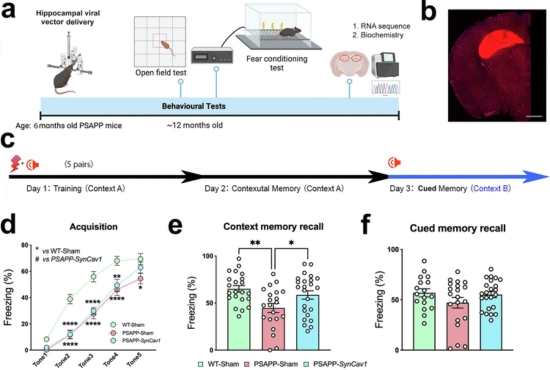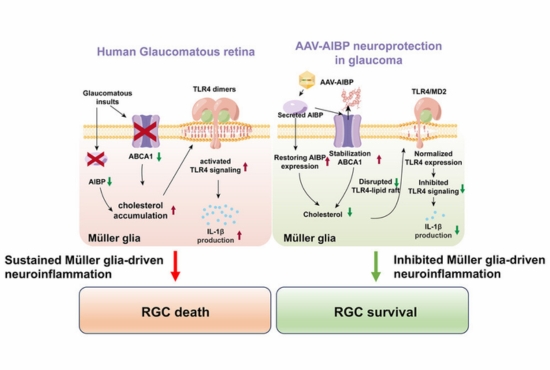-

Angels Almenar-Queralt
Project Title: “Assessing the functional impact of an Alzheimer’s disease protective SNP in the CD33 microglial gene”
Project Description: Genetic variants in microglial gene CD33 are linked to Alzheimer’s Disease. This project will test whether a CRISPR-mediated intervention that introduces a naturally occurring CD33 protective variant in human induced pluripotent stem cells (hiPSCs) results in functionally advantageous microglia. Findings from this proposal will lay the foundation to position CD33 as an attractive candidate for gene-edited myeloid transplantation to treat familial AD and gain knowledge about AD in general.
-

Stephanie Cherqui
Project Title: "Evaluating Wild-Type Hematopoietic Stem and Progenitor Cell Transplantation as a Novel Therapeutic Strategy for Creatine Transporter Deficiency (SLC6A8-CTD)"
Project Description: This preclinical proof-of-concept project will investigate whether defects in the plasma membrane protein SLC6A8 that lead to creatine transporter deficiency (CTD) can be corrected by wild-type Hematopoietic Stem and Progenitor Cells (HSPCs). If demonstrated to be safe, effective, and sustainable, this may suggest a new therapeutic approach to over 1,000 monogenetic diseases related to plasma membrane transmembrane proteins.
-

Steven Dowdy
Project Title: “Tackling the siRNA and ASO Therapeutics Delivery Problem with New Chemistry”
Project Description: There are several cancers, pandemic viruses and other diseases that could benefit from RNA therapeutic approaches using antisense oligonucleotides (ASOs) and small interfering RNAs (siRNAs). However, their application is limited due to an endosome trap that prevents them from entering the cell cytoplasm. This project proposes to develop a novel, non-toxic chemical method to improve endosome escape modeled after virus escape mechanisms.
-

Pradipta Ghosh & Farah Sheikh
Project Title: "PULSE—Precision Understanding of Lethal Structural Errors"
Project Description: PULSE builds the first end-to-end human pipeline to decode and repair inherited arrhythmogenic cardiomyopathy. Using patient-derived iPSCs, human cardiac NAMs, and gene therapy (AAV/CRISPR), it targets DSP cardiomyopathy by augmenting connexin43 to stabilize broken desmosomal junctions across genotypes. This mutation-agnostic, human-first strategy redefines therapy for lethal cardiomyopathies and enables scalable precision medicine.
-

Brian Head
Project Title: “Proof-of-Concept Hominid-suitable AAV.CAP-Mac to deliver Neuron-targeted Caveolin Gene Therapy in Multiple Sclerosis”
Project Description: In late stages of neurodegenerative disorders such as multiple sclerosis (MS), remyelination ability is compromised, leading to axonal injury and cerebral atrophy. This project will test whether a novel, modified adeno-associated viral vector AAV9 gene therapy delivered via intracerebroventricular (ICV) route will preserve/restore myelination, axonal function, and neurobehavior.
-

Vivian Hook
Project Title: “Capthepsin B siRNA gene silencing for development of a new therapeutic approach for Alzheimer’s disease (AD), traumatic brain injury (TBI), and related neurological diseases”
Project Description: Extensive evidence in the field demonstrates cathepsin B as a common mechanism participating in the behavioral deficits and neuropathology of Alzheimer’s disease, traumatic brain injury, and related neurological diseases. This project proposes to develop an effective small interfering RNAs (siRNA) gene silencing complex using a novel peptide delivery system to facilitate siRNA entry into neurons and reduce cathepsin B.
-

Wonkyu Ju
Project Title: “A-kinase anchoring protein 1-mediated neuroprotection in glaucoma”
Project Description: Glaucoma remains a leading cause of global blindness by damaging the nerve in the back of the eye called the optic nerve. Accumulating evidence suggests that mitochondrial dysfunction is a critical element in the development of glaucoma. A kinase anchoring protein 1 (AKAP1) plays a significant part in mitochondrial maintenance. This study proposes to reintroduce AKAP1 expression via adeno-associated virus serotype 2 (AAV2) transduction to reduce mitochondrial dysfunction and synaptic alteration in the glaucomatous retina and provide effective neuroprotection to glaucoma.
-

Dan Kaufman
Project Title: “Targeted virus-like particles for in vivo engineering of lymphocytes for improved anti-tumor activity”
Project Description: This project combines expertise in gene therapy, nanobiology, and cancer biology to produce novel, non-infectious virus-like particles, termed enveloped nanobodies (ENaBs). These ENaBs are designed to directly target and engineer a patient’s own endogenous immune cells (in vivo) to express chimeric antigen receptors (CARs) to mediate killing of ovarian cancer and potentially many other tumor types. Researchers will optimize cell targeting and assess effectiveness.
-

Ester Kwon
Project Title: “Lipid nanoparticle engineering for in vivo immune cell cancer therapy”
Project Description: In vivo delivery of CAR constructs to immune cells using lipid nanoparticles (LNPs) could lead to more accessible ‘off-the-shelf’ anti-tumor therapy. This project proposes to optimize an in vivo LNP approach by first screening LNP activity in multiple immune cell types in vitro and evaluating the most effective LNP formulations for anti-cancer killing activity in vivo.
-

Loren Looger
Project Title: “De novo design of functional AAV capsids and AAV serotypes with increased payload limit using computational protein design and machine learning”
Project Description: This project combines protein engineering, machine learning, and directed evolution to create adeno-associated virus (AAV) capsids for applications in human gene therapy. In particular, we will design and screen new serotypes for improved infection of difficult cell types, avoidance of circulating antibodies, and increased payload capacity. Serotypes will be made available for screening in diverse applications.
-

Prashant Mali
Project Title: “Engineering and validation of novel AAV variants with enhanced tissue tropism in non-human primates”
Project Description: This project builds on previous Adeno-associated virus (AAV) variant screening work from the researchers. Candidate AAV variants with activity significantly higher than the current state-of-the-art AAV9 benchmark in disease-relevant organs such as the lung, heart, and skeletal muscle resulted. The proposal involves investigation of the performance of top performing delivery vector candidates in these tissues and unraveling of the mechanism of transduction. Knowledge gained could deepen the field’s understanding of AAV biology while also generating delivery vectors with unique cell-type tropism across a broad tissue spectrum.
-

Uri Manor
Project Title: "Advancing ASO Gene Therapy for CMT2A Using a Patient-Derived Motor Neuron Discovery Platform"
Project Description: We will identify allele-specific antisense oligonucleotides (ASOs) to selectively silence the mutant MFN2 allele in dominant forms of Charcot-Marie-Tooth disease type 2A. Using a staged in vitro pipeline with deep learning–based imaging, we will screen candidates in patient-derived fibroblasts and motor neurons for restoration of axonal transport and outgrowth. This strategy targets common SNPs to enable therapy for ≥87.5% of the patient population.
-

Alysson Muotri
Project Title: “Zika virus as a novel gene therapy delivery system”
Project Description: This project proposes to use the Zika virus (ZIKV) scaffold as a novel vector system for gene delivery that, unlike existing vector platforms, can efficiently cross the blood-brain barrier to infect brain cells when administered systemically. The investigators leverage expertise in a genetic neurological syndrome, Rett syndrome, and employ the ZIKV vector to restore the function of the MECP2 gene in neurons from the central nervous system (CNS). This novel vector holds promise for gene therapy and gene editing strategies in various human conditions, spanning applications in the adult nervous system and intra-uterine delivery.
-

Thomas Rogers
Project Title: “(bnAb)-Engineered B cell Response Rescue (BEBRR) in immunocompromised systems”
Project Description: This project proposes to develop a gene therapy strategy that has the capacity to rescue antibody responses in individuals with congenital or acquired immunodeficiencies. The investigators will develop a CRISPR/Cas9-mediated monoclonal immunoglobulin(mAb) gene therapy B cell strategy to repopulate an immunocompromised patient's immune system. In this way, an adaptive response against common pathogens of concern can be stimulated.
-

Gene Yeo
Project Title: “Novel RNA-Targeting Therapeutic Strategy for ALS”
Project Description: Central nervous system-specific protein STMN2 involved in axon regeneration has recently been recognized as a key therapeutic target for Amyotrophic lateral sclerosis (ALS). This is a progressive fatal neurodegenerative disorder caused by motor neuron degeneration. A novel approach based on single-dose systemic administration of human derived antisense RNAs (anRNA) via adeno-associated viral vectors (AAV) is being explored in this project for the restoration of STMN2 levels. Identification of a lead candidate anRNA in a human stem cell model is proposed followed by validation of AAV-mediated delivery.
Seed Grants
$1.3M in Funding Awarded
- The UC San Diego Gene Therapy Initiative has provided seed funding to 15 grant recipients at UC San Diego.The awarded projects were selected among a pool of innovative and high-caliber research proposals that investigate a variety of different gene therapy technologies with applications to over 20 different diseases.


Alzheimer's Publication
Brian Head, Professor of Anesthesiology
May 28, 2025 | Signal Transduction and Targeted Therapy
Research describing gene therapy introduction of SynCav1, a neuroprotective protein, that shows promise in preserving memory in Alzheimer's disease animal models.
Glaucoma Publication
Wonkyu Ju, Professor of Ophthalmology/Bioengineering
August 6, 2025 | Molecular Therapy
Preliminary findings that a novel AAV gene therapy intervention leads to important nerve protection in mouse models of glaucoma.
